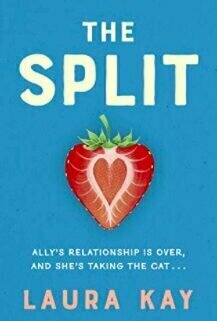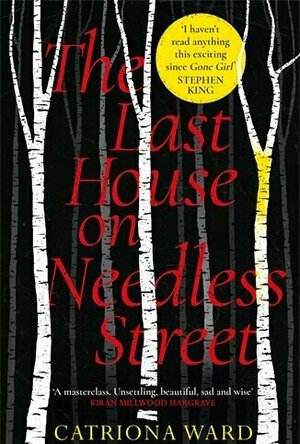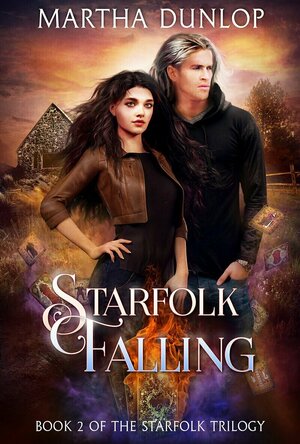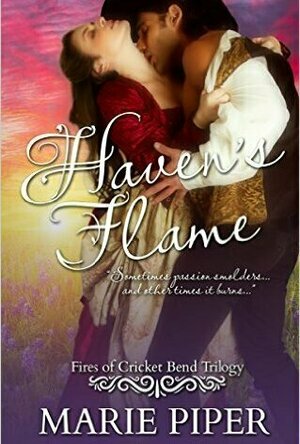Search
Search results
There aren’t many books that make me laugh out loud, but The Split did just that - and more than once. It doesn’t seem like it’s going to be a book with much to laugh about. I mean, Ally is dumped by her girlfriend who is already seeing someone else, she’s having a career crisis after managing to escape teaching, and she moves back in with her dad in Sheffield - which is a long way from London. At the last minute, Ally impulsively takes the cat - Emily’s cat. I think this surprises Ally too, as the cat doesn’t seem to like anyone, least of all Ally.
So not the cheeriest subject, but the way it was written - and the narration by Imogen Church - was what made me empathise with Ally. And the situations Ally found herself in were so relatable. I felt really mean laughing at her and Jeremy going out for their first few runs, but they were hilarious (and I’ve been there too!).
I even found myself talking to Ally (should I own up to this, and the fact that I was wearing headphones at the time?!), and was helpfully reminded by the 17 year old, that telling a fictitious character not to email her ex-girlfriend was pretty pointless. I stand by what I said though!
I loved this book, and it brightened my day for a week of dog walks and (the dreaded) dinner preparation!
Recommended!
Many thanks to Quercus for my original e-copy (even though I listened to it on Audible!).
So not the cheeriest subject, but the way it was written - and the narration by Imogen Church - was what made me empathise with Ally. And the situations Ally found herself in were so relatable. I felt really mean laughing at her and Jeremy going out for their first few runs, but they were hilarious (and I’ve been there too!).
I even found myself talking to Ally (should I own up to this, and the fact that I was wearing headphones at the time?!), and was helpfully reminded by the 17 year old, that telling a fictitious character not to email her ex-girlfriend was pretty pointless. I stand by what I said though!
I loved this book, and it brightened my day for a week of dog walks and (the dreaded) dinner preparation!
Recommended!
Many thanks to Quercus for my original e-copy (even though I listened to it on Audible!).
ClareR (6091 KP) rated The Last House on Needless Street in Books
Mar 9, 2022
This book is mind-bending, constantly surprising and just plain old phenomenal, really 🤷🏼♀️ Just when I thought that I knew what was going on, something happened to completely throw me off.
It’s also a book with just enough oddness to keep me reading. Usually, a book about missing children would be a big “no” from me, but I have to admit to being drawn in by the talking, God fearing cat. I mean, how can that not appeal to the reader?
Ted is the main character though. He lives in a rundown house on Needless Street with his talking cat, Olivia, and his daughter Lauren, who visits at the weekends. He’s a reclusive man, who boards up his windows, has spy holes to look into the garden and uses a chest freezer to keep his cat in when he’s out. He doesn’t do himself any favours - he’s odd.
And so Dee decides that he is the man responsible for the disappearance of her sister. The Police have already discounted him, but she is sure that he fits the profile of a child abductor. She finds a house for sale on Needless Street, moves in and bides her time.
This is hands down, one of the strangest, delightfully off-kilter, most uncomfortable books I’ve read in recent times. I thought I had the ending all sorted out, but there are a fair few twists and turns that will wrong-foot you throughout this frankly brilliant book.
If you enjoy an eccentric, strange, slightly horrifying book, you’ll undoubtedly enjoy this. I loved it.
It’s also a book with just enough oddness to keep me reading. Usually, a book about missing children would be a big “no” from me, but I have to admit to being drawn in by the talking, God fearing cat. I mean, how can that not appeal to the reader?
Ted is the main character though. He lives in a rundown house on Needless Street with his talking cat, Olivia, and his daughter Lauren, who visits at the weekends. He’s a reclusive man, who boards up his windows, has spy holes to look into the garden and uses a chest freezer to keep his cat in when he’s out. He doesn’t do himself any favours - he’s odd.
And so Dee decides that he is the man responsible for the disappearance of her sister. The Police have already discounted him, but she is sure that he fits the profile of a child abductor. She finds a house for sale on Needless Street, moves in and bides her time.
This is hands down, one of the strangest, delightfully off-kilter, most uncomfortable books I’ve read in recent times. I thought I had the ending all sorted out, but there are a fair few twists and turns that will wrong-foot you throughout this frankly brilliant book.
If you enjoy an eccentric, strange, slightly horrifying book, you’ll undoubtedly enjoy this. I loved it.
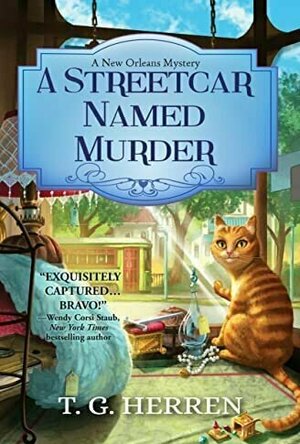
A Streetcar Named Murder
Book
Blackmail in the Big Easy turns to cold-blooded murder in this debut cozy mystery perfect for fans...
Merissa (13792 KP) rated Black Hearted (Black Knights Inc: Reloaded #2) in Books
Oct 23, 2023
BLACK HEARTED is the second book in the Black Knights Inc: Reloaded series. I haven't read the first book in this series but I don't feel as though it impacted me greatly, although I do believe it would have been better if I had read it.
Sam thinks of Hannah as the thirteen-year-old little sister to his ex-girlfriend, not realising that she is now twenty-nine, with thoughts and dreams of her own. It doesn't help that most of those dreams revolve around Sam, the childhood crush she never grew out of. Hannah walks away at one time (presumably after the first book finishes) but some time down the line, she needs Sam's help. Hannah has been framed and is classed as a traitor. She goes to the one person she knows will help her.
I found this story to be both fast-paced and also slow-burn, as the multitude of events and miscommunications built up. Told from the third person, you hear from Sam and Hannah, but I loved the snippets from Eliza and Fisher. And the poetry quotes were exceedingly well chosen.
A story filled with terrorism, hacking, love, and miscommunication. If these things float your boat, then I can definitely recommend it.
** same worded review will appear elsewhere **
* A copy of this book was provided to me with no requirements for a review. I voluntarily read this book; the comments here are my honest opinion. *
Merissa
Archaeolibrarian - I Dig Good Books!
Oct 23, 2023
Sam thinks of Hannah as the thirteen-year-old little sister to his ex-girlfriend, not realising that she is now twenty-nine, with thoughts and dreams of her own. It doesn't help that most of those dreams revolve around Sam, the childhood crush she never grew out of. Hannah walks away at one time (presumably after the first book finishes) but some time down the line, she needs Sam's help. Hannah has been framed and is classed as a traitor. She goes to the one person she knows will help her.
I found this story to be both fast-paced and also slow-burn, as the multitude of events and miscommunications built up. Told from the third person, you hear from Sam and Hannah, but I loved the snippets from Eliza and Fisher. And the poetry quotes were exceedingly well chosen.
A story filled with terrorism, hacking, love, and miscommunication. If these things float your boat, then I can definitely recommend it.
** same worded review will appear elsewhere **
* A copy of this book was provided to me with no requirements for a review. I voluntarily read this book; the comments here are my honest opinion. *
Merissa
Archaeolibrarian - I Dig Good Books!
Oct 23, 2023
Lyndsey Gollogly (2893 KP) rated Grace ( The Revelations book 1) in Books
Aug 22, 2022
149 of 230
Kindle
Grace (The Revelations book 1)
By Leanne Rathbone
⭐️⭐️⭐️⭐️⭐️
Good and Evil...two absolutes that every person is taught about from a young age but what if the lines between the two suddenly blurred, what if everything you believed you knew changed in the blink of an eye?
These are the dilemmas that 17-year-old Grace Ayre suddenly finds herself facing. One fateful night a brutal attack leaves her best friend dead and her life changes in an instant. She's moved away from the life she had always known and thrown into the life of a loner in a remote village in the north of England.
An unnerving trip through a darkened cemetery sparks a series of events that make Grace question everything she knows about the world and more importantly, everything she knows about herself.
With her life in imminent danger will she discover enough about herself to change her future and will the elusive and mysterious Nate help or hinder her process?
Grace is a story of love, loss, friendship and discovering how one's fate can shape existence and how the lust for power can destroy it all.
I literally could not put this down! I started at 2am and it’s now 4:24am. It was addictive and I just could stop reading. The story, the characters and the fact it was set in the UK kept me hooked. As you may have guessed from previous books I’m an emotional reviewer and this was the perfect book for me. Absolutely loved it!
Kindle
Grace (The Revelations book 1)
By Leanne Rathbone
⭐️⭐️⭐️⭐️⭐️
Good and Evil...two absolutes that every person is taught about from a young age but what if the lines between the two suddenly blurred, what if everything you believed you knew changed in the blink of an eye?
These are the dilemmas that 17-year-old Grace Ayre suddenly finds herself facing. One fateful night a brutal attack leaves her best friend dead and her life changes in an instant. She's moved away from the life she had always known and thrown into the life of a loner in a remote village in the north of England.
An unnerving trip through a darkened cemetery sparks a series of events that make Grace question everything she knows about the world and more importantly, everything she knows about herself.
With her life in imminent danger will she discover enough about herself to change her future and will the elusive and mysterious Nate help or hinder her process?
Grace is a story of love, loss, friendship and discovering how one's fate can shape existence and how the lust for power can destroy it all.
I literally could not put this down! I started at 2am and it’s now 4:24am. It was addictive and I just could stop reading. The story, the characters and the fact it was set in the UK kept me hooked. As you may have guessed from previous books I’m an emotional reviewer and this was the perfect book for me. Absolutely loved it!
Lyndsey Gollogly (2893 KP) rated The Plotters in Books
Oct 16, 2023
154 of 235
Book
The Plotters
By Un-su Kim
⭐️⭐️⭐️
Behind every assassination, there is an anonymous mastermind--a plotter--working in the shadows. Plotters quietly dictate the moves of the city's most dangerous criminals, but their existence is little more than legend. Just who are the plotters? And more important, what do they want?
Reseng is an assassin. Raised by a cantankerous killer named Old Raccoon in the crime headquarters "The Library," Reseng never questioned anything: where to go, who to kill, or why his home was filled with books that no one ever read. But one day, Reseng steps out of line on a job, toppling a set of carefully calibrated plans. And when he uncovers an extraordinary scheme set into motion by an eccentric trio of young women--a convenience store clerk, her wheelchair-bound sister, and a cross-eyed librarian--Reseng will have to decide if he will remain a pawn or finally take control of the plot.
Crackling with action and filled with unforgettable characters, The Plotters is a deeply entertaining thriller that soars with the soul, wit, and lyricism of real literary craft.
I really enjoyed this book it was dark, twisty and violent. A look into the dark world of an assassin life one that doesn’t like doing what he does. Knowing he has only one way out. I wasn’t expecting to like it at all it was a mystery book I had in a subscription box. It was really well translated too.
Book
The Plotters
By Un-su Kim
⭐️⭐️⭐️
Behind every assassination, there is an anonymous mastermind--a plotter--working in the shadows. Plotters quietly dictate the moves of the city's most dangerous criminals, but their existence is little more than legend. Just who are the plotters? And more important, what do they want?
Reseng is an assassin. Raised by a cantankerous killer named Old Raccoon in the crime headquarters "The Library," Reseng never questioned anything: where to go, who to kill, or why his home was filled with books that no one ever read. But one day, Reseng steps out of line on a job, toppling a set of carefully calibrated plans. And when he uncovers an extraordinary scheme set into motion by an eccentric trio of young women--a convenience store clerk, her wheelchair-bound sister, and a cross-eyed librarian--Reseng will have to decide if he will remain a pawn or finally take control of the plot.
Crackling with action and filled with unforgettable characters, The Plotters is a deeply entertaining thriller that soars with the soul, wit, and lyricism of real literary craft.
I really enjoyed this book it was dark, twisty and violent. A look into the dark world of an assassin life one that doesn’t like doing what he does. Knowing he has only one way out. I wasn’t expecting to like it at all it was a mystery book I had in a subscription box. It was really well translated too.
Merissa (13792 KP) rated Starfolk Falling (The Starfolk Trilogy #2) by Martha Dunlop in Books
Jul 21, 2022 (Updated Jul 26, 2023)
STARFOLK FALLING is the second book in The Starfolk Trilogy and we continue where book one left off. Amelia is still shouting loudly about Soul Snatchers, whilst Jonan, Beth, and the others try to contain the madness.
We learn more about the history and pasts of each of our characters, and figure out just how they worked together - or were supposed to! We are also introduced to new characters who have big roles to play, even if one of them isn't that old.
Amelia is fraying slightly at the edges, which is fair enough considering the torment she is putting others through. I still love Bill and love how he is making her life as miserable as possible! Roland goes through a lot in this book. I'm keeping my fingers crossed he works it out AND Beth is able to help Layla!
Just as much intrigue and suspense in this book but, for me, it flowed a little better. I was able to get lost in the story much quicker than in book one. Maybe it's because I already had the background of the characters. I don't know. All I know is I thoroughly enjoyed it and can't wait for the final! Highly recommended by me.
** same worded review will appear elsewhere **
* A copy of this book was provided to me with no requirements for a review. I voluntarily read this book, and the comments here are my honest opinion. *
Merissa
Archaeolibrarian - I Dig Good Books!
Jul 17, 2022
We learn more about the history and pasts of each of our characters, and figure out just how they worked together - or were supposed to! We are also introduced to new characters who have big roles to play, even if one of them isn't that old.
Amelia is fraying slightly at the edges, which is fair enough considering the torment she is putting others through. I still love Bill and love how he is making her life as miserable as possible! Roland goes through a lot in this book. I'm keeping my fingers crossed he works it out AND Beth is able to help Layla!
Just as much intrigue and suspense in this book but, for me, it flowed a little better. I was able to get lost in the story much quicker than in book one. Maybe it's because I already had the background of the characters. I don't know. All I know is I thoroughly enjoyed it and can't wait for the final! Highly recommended by me.
** same worded review will appear elsewhere **
* A copy of this book was provided to me with no requirements for a review. I voluntarily read this book, and the comments here are my honest opinion. *
Merissa
Archaeolibrarian - I Dig Good Books!
Jul 17, 2022
Debbiereadsbook (1669 KP) rated Sweat Connection (Hot Under the Collar #1) in Books
Aug 8, 2023
Quite possibly McIntyre's best work to date!
Independent reviewer for Archaeolibrarian, I was gifted my copy of this book.
I'm not rehashing the blurb, and I'm not telling you the story, I'ma just gonna jump straight in!
READ THIS FREAKING BOOK, PEOPLE!
It's so well written, from both Rhys and Cole's POV, in the first person, each chapter headers the change.
It's steamy and smexy (sooooooooooooooooooo smexy!) It's deeply emotional, for both Rhys and Cole and that surprised me, don't ask me why, cos I've no freaking idea! I just expected this to be a light and fluffy book. And it is, but with a heavy side of emotions.
It's sweet and cute, it's so freaking cute. Full of the warm and fuzzies that low/no angst books carry. Full of emotion and love.
Rhys is in a dark place when he comes into contact with Cole, and after that, it's just two guys falling in love! Throw in McIntyre's skill with found families, and extended families, and a 2 yr old called Sammy and you've got, for me, possibly McIntyre's best work yet!
AND this is the first in a new series and I cannot wait for the next one!
I'm making this a relatively short review, I might start ranting and raving, and if I allow myself free reign, you could end up with a 10,000 word review!
I'm putting this on my Masterpiece shelf! I abso-freaking-lutely loved this book and I can't see why anyone wouldn't.
5 full and shiny stars.
*same worded review will appear elsewhere
I'm not rehashing the blurb, and I'm not telling you the story, I'ma just gonna jump straight in!
READ THIS FREAKING BOOK, PEOPLE!
It's so well written, from both Rhys and Cole's POV, in the first person, each chapter headers the change.
It's steamy and smexy (sooooooooooooooooooo smexy!) It's deeply emotional, for both Rhys and Cole and that surprised me, don't ask me why, cos I've no freaking idea! I just expected this to be a light and fluffy book. And it is, but with a heavy side of emotions.
It's sweet and cute, it's so freaking cute. Full of the warm and fuzzies that low/no angst books carry. Full of emotion and love.
Rhys is in a dark place when he comes into contact with Cole, and after that, it's just two guys falling in love! Throw in McIntyre's skill with found families, and extended families, and a 2 yr old called Sammy and you've got, for me, possibly McIntyre's best work yet!
AND this is the first in a new series and I cannot wait for the next one!
I'm making this a relatively short review, I might start ranting and raving, and if I allow myself free reign, you could end up with a 10,000 word review!
I'm putting this on my Masterpiece shelf! I abso-freaking-lutely loved this book and I can't see why anyone wouldn't.
5 full and shiny stars.
*same worded review will appear elsewhere
Merissa (13792 KP) rated Haven's Flame (Fires of Cricket Bend #1) in Books
May 17, 2023
As this book started, I will admit to being worried! It appeared that it was going the way of a love triangle which, although I don't hate, I do tend to dislike. However, I stayed with it and I'm glad that I did. This is an interesting and fast-paced tale, set when the West was Wild and women were buttoned up, unless you were a scarlet woman!
Haven is a strong female lead, although sometimes she does come across as a bit naive. She is only twenty years old though, so cut her some slack. Matthew, I loved. He is the strong, silent type that would probably drive me insane in real life. Because you could 'hear' his thoughts though, his reasons for behaving how he did made it understandable, even noble. Hank is someone that I didn't trust from the get-go, and I was glad when this book changed from a love triangle into something else!
Very well-written and with no grammatical or editing issues that I could see, this story flowed well and with plenty of details. Enough build-up to make the ending breathtaking. It was nice to see the main female being honest with the main male too!
I would have no hesitation in recommending this book to all fans of Historical Western Romance.
* A copy of this book was provided to me with no requirements for a review. I voluntarily read this book, and the comments here are my honest opinion. *
Merissa
Archaeolibrarian - I Dig Good Books!
Jan 9, 2016
Haven is a strong female lead, although sometimes she does come across as a bit naive. She is only twenty years old though, so cut her some slack. Matthew, I loved. He is the strong, silent type that would probably drive me insane in real life. Because you could 'hear' his thoughts though, his reasons for behaving how he did made it understandable, even noble. Hank is someone that I didn't trust from the get-go, and I was glad when this book changed from a love triangle into something else!
Very well-written and with no grammatical or editing issues that I could see, this story flowed well and with plenty of details. Enough build-up to make the ending breathtaking. It was nice to see the main female being honest with the main male too!
I would have no hesitation in recommending this book to all fans of Historical Western Romance.
* A copy of this book was provided to me with no requirements for a review. I voluntarily read this book, and the comments here are my honest opinion. *
Merissa
Archaeolibrarian - I Dig Good Books!
Jan 9, 2016
Merissa (13792 KP) rated Not If I See You First in Books
May 23, 2023
This is a young adult book with clout! Told in a contemporary setting, our female lead isn't very likeable, although she does have some redeeming features. With a good set of friends around her, she sets out on a normal school year, trying to cope with her blindness and a new influx of students.
Unfortunately for her, one of those students is her old best friend, who also broke her heart when she was thirteen. Now, Parker can hold a grudge and hold it well. However, she also has to grow up herself, as she deals with situations beyond her current comprehension and also has that painful lesson to learn that she is not the most important person of all, even if she is blind, and the world does not revolve around her.
With a smidge of romance thrown in for good measure, this is a well-told story about a girl maturing into herself, and the strength of friendships.
There is a bit of braille at the end which, according to Virginia on Goodreads, are simply two more rules:
Rule #11:
Don't worry that I won't give you any second chances. I will. I might even need some from you.
Rule #12:
Don't jump to conclusions. You and me both, but mostly me.
* A copy of this book was provided to me with no requirements for a review. I voluntarily read this book, and the comments here are my honest opinion. *
Merissa
Archaeolibrarian - I Dig Good Books!
Feb 22, 2016
Unfortunately for her, one of those students is her old best friend, who also broke her heart when she was thirteen. Now, Parker can hold a grudge and hold it well. However, she also has to grow up herself, as she deals with situations beyond her current comprehension and also has that painful lesson to learn that she is not the most important person of all, even if she is blind, and the world does not revolve around her.
With a smidge of romance thrown in for good measure, this is a well-told story about a girl maturing into herself, and the strength of friendships.
There is a bit of braille at the end which, according to Virginia on Goodreads, are simply two more rules:
Rule #11:
Don't worry that I won't give you any second chances. I will. I might even need some from you.
Rule #12:
Don't jump to conclusions. You and me both, but mostly me.
* A copy of this book was provided to me with no requirements for a review. I voluntarily read this book, and the comments here are my honest opinion. *
Merissa
Archaeolibrarian - I Dig Good Books!
Feb 22, 2016
